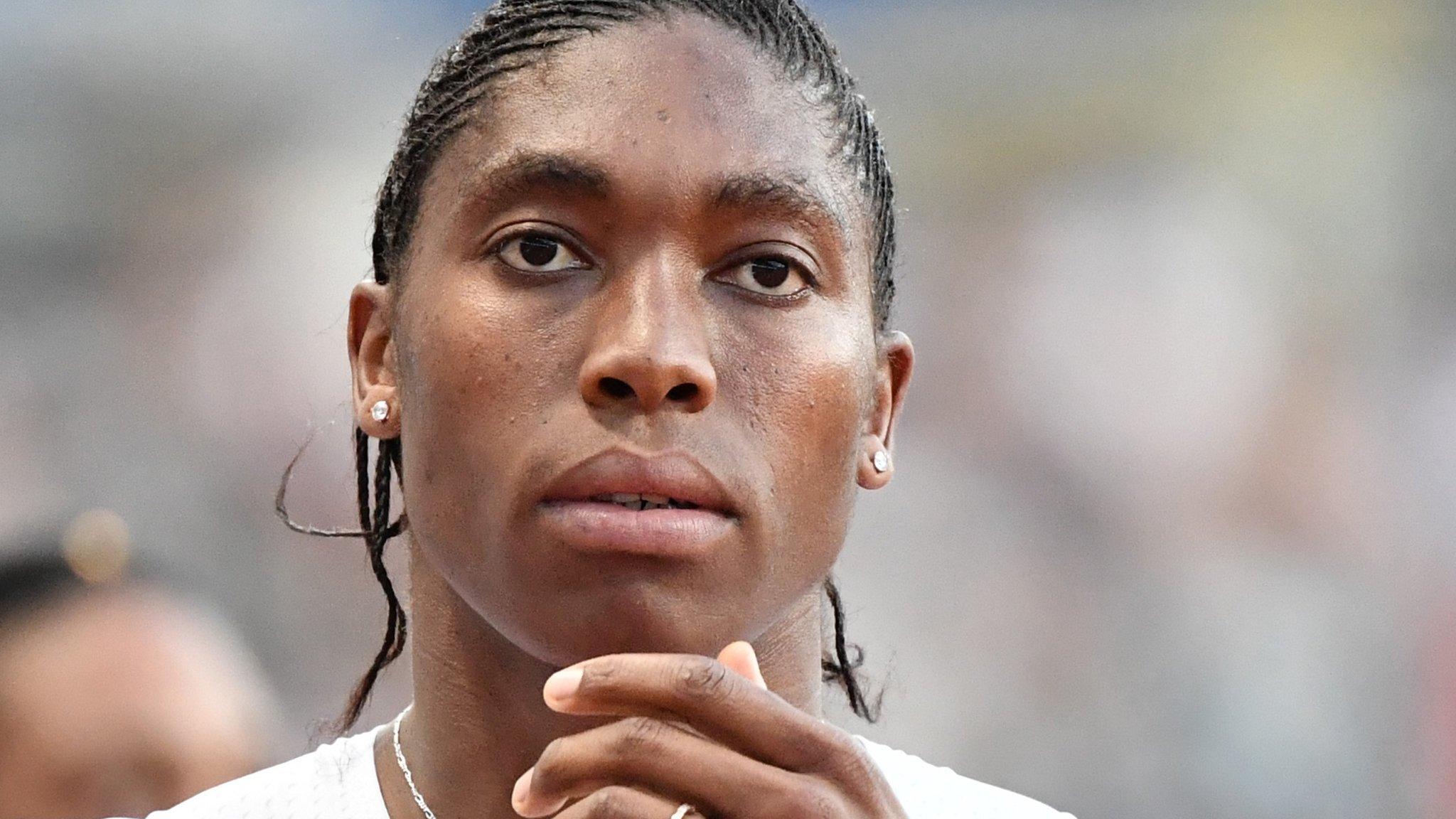Who is South African Olympic gold medallist Caster Semenya?
- Published
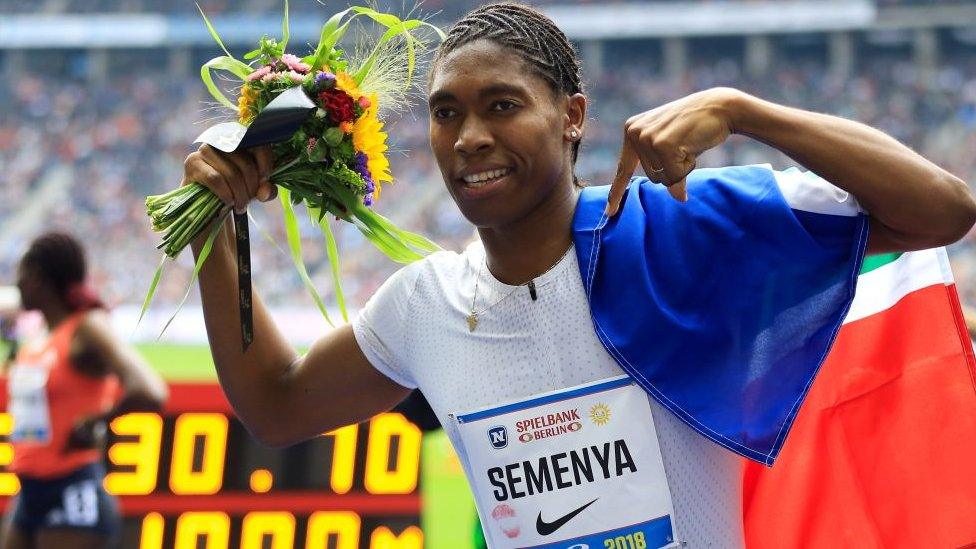
Semenya's gender has been one of the most intensely debated topics in women sport
Since Mokgadi Caster Semenya shot from being an unknown teenage athlete to become world champion in 2009, her gender, and possible advantages in her biology, have come under fierce scrutiny around the world.
Her upbringing was anything but privileged.
Born on 7 January 1991 in South Africa's Limpopo province, Semenya grew up in a remote village not far from the border with Botswana, along with three sisters and a brother.
"I was always away from home, always in the bushes, and looking for adventures. So [my family] always let me do what I like," she told the BBC in 2009.
"I grew up more with boys. I never liked to play around with girls because I always thought that girls were too soft."
Her interest in sport was evident early in life. At school she played football, and also proved that she had raw athletic talent.
She did not have access to the high-end facilities enjoyed by some of her competitors on the world stage.
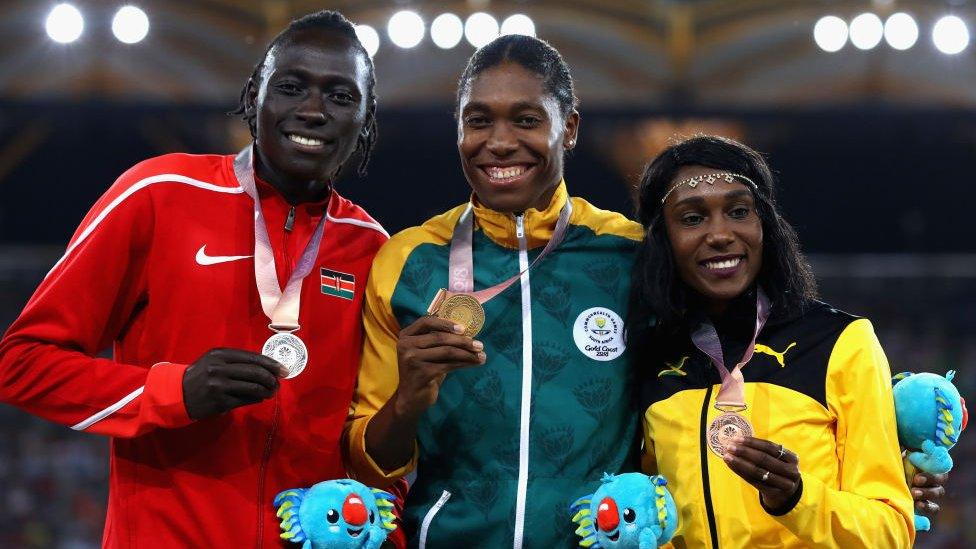
Caster Semenya (C) won gold at the 2018 Commonwealth Games, followed by Kenya's Margaret Nyairera Wambui (L) and Natoya Goule of Jamaica (R)
Yet her athletic achievements have been impressive: a double Olympic gold medallist and three-time world champion over 800m, and a winner of her past 29 races over the distance.
Whenever she runs, she almost always wins.
Her fans have nicknamed her "Cobra" because she's such a dangerous competitor.
What's behind Caster Semenya's cobra pose?
Banned from competition
The competitions have become a necessary distraction for the 28 year old, especially after being thrust into a media maelstrom when the IAAF publicly, some say insensitively, forced her to undergo a gender test.
The results of the testing carried out 10 years ago have not been made public, although media reports claimed it showed both male and female characteristics, including higher-than-normal levels of testosterone.
Semenya was forced to spend 11 months on the sidelines having tests but was cleared to compete in 2010.
Research commissioned by the IAAF showed in 2017 that female athletes with elevated testosterone had "a competitive advantage", claiming that high testosterone was responsible for an improvement in runners' performance of up to 3%.
However those findings have been contested by Semenya and her team.
Support of a nation
Semenya told the BBC in 2009 that her family had helped her get through what she says was a hard time.
Caster Semenya: The full interview
South Africans led by the government have also rallied behind her. The ruling African National Congress (ANC) has called her treatment "dehumanising".
The party has repeatedly accused the IAAF of infringing Semenya's human rights and dignity.
She has also fought publicly against what she sees as a determined plot to erase what she worked so hard to achieve.
Her signature celebration of brushing her shoulders after a win is seen as a way of dismissing the intense scrutiny into her life.

Caster Semenya

"I'm just being Caster. I don't want to be someone who I don't want to be. I don't want to be someone who people wants to be. I just want to be me."

Away from the track, Semenya has partnered with a local organisation to advocate for girls' menstrual health.
She also completed her Diploma in Sports Science at North-West University in Potchefstroom in 2018.
In 2014 she was awarded The Order of Ikhamanga, given to South African citizens who have excelled in the fields of arts, culture, literature, music, journalism or sport.
How she met her wife
She married her wife, Violet Raseboya, who is a sprinter, in 2017 in a lavish ceremony.
"We met in a restroom in 2007. She was a runner and was being escorted by doping officials. She thought I was a boy and said: 'What is a boy doing in here?" Semenya said of the couple's first meeting, in an interview with entertainment network BET.
"I'm not a boy. You think I'm lost? You think I can just walk in here?" she responded.
She would later tell Violet how she felt.
"We were in denial. She had a past. She had a boyfriend. [Violet] was trying to deny being in love with a woman."
"She is someone I can rely on. Through thick and thin," Semenya said of her wife.

Caster Semenya (R) and her wife Violet Raseboya at their wedding in 2017
Despite all the controversy, her athletics career has transformed her financial fortunes.
Although in 2010, a year after she became world champion, her coach complained that she still had no sponsors.
She is now backed by sport giant Nike, which featured her in a big advertisement campaign last year about self-belief.
Her feats on the tracks have also established her as among the world's top athletes and she won $52,000 (£40,000) in the 2018 Diamond League season.
Despite the publicity surrounding her, she remains an intensely private person, although her tweets provide a window, however small, into her current feelings.
"Sometimes it's better to react with no reaction," she tweeted in reaction to losing her appeal against the IAAF at the Court of Arbitration for Sport, meaning the world athletics governing body will be allowed to restrict testosterone levels in female runners, potentially dealing a huge blow to her future career on the track.What Caster Semenya ruling means for women and sport
- Published1 May 2019
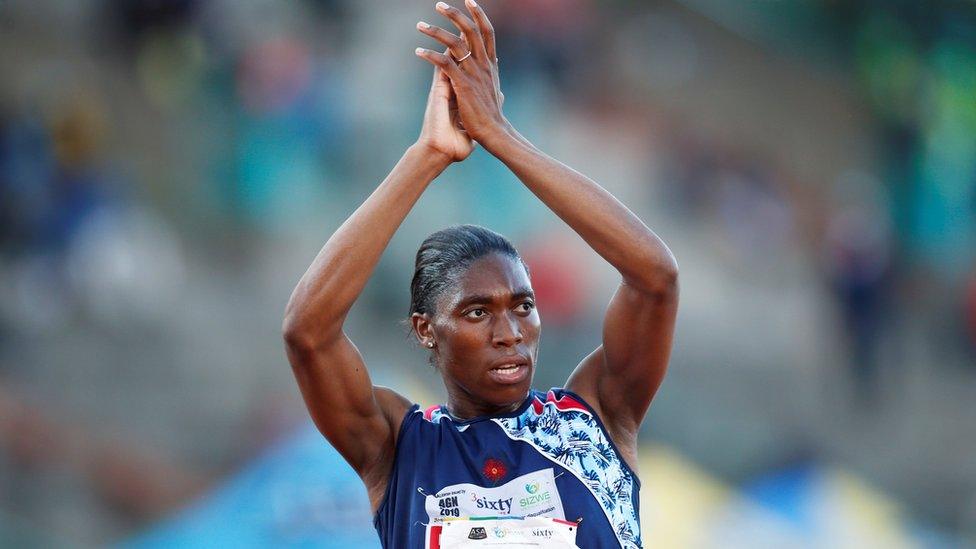
- Published2 June 2018
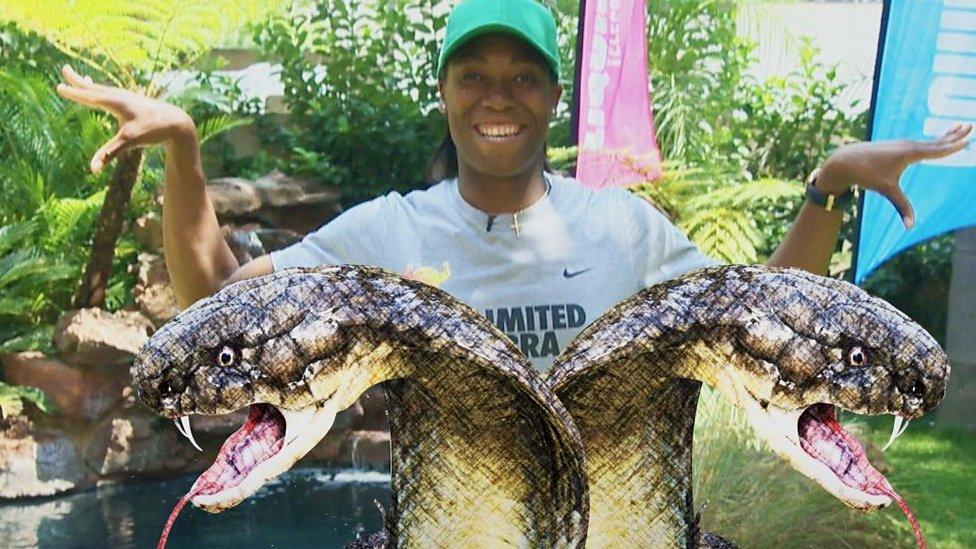
- Attribution
- Published16 December 2024
